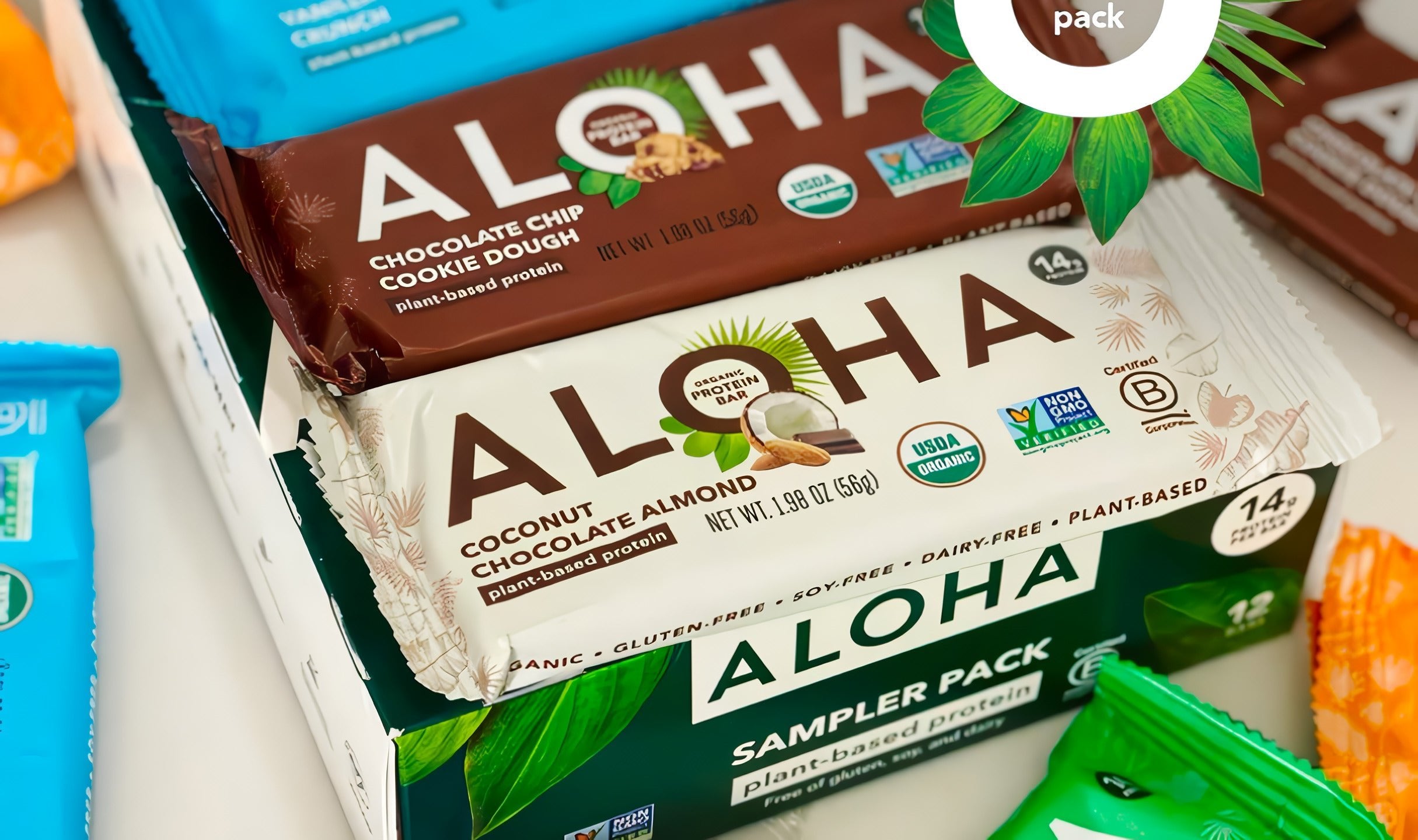Key Takeaways:
-
Incorporating the Right Foods: Essential Nutrients: When choosing a meal replacement bar, prioritize essential nutrients like complete proteins, fiber, and low sugar content to meet your nutritional needs effectively.
-
Incorporating the Right Foods:Multipurpose: Meal replacement bars offer convenience, help manage calories, provide nutritional assurance, are versatile, save time, and reduce food waste, making them a valuable addition to a busy lifestyle.
-
Things to Consider: To integrate meal replacement bars effectively, consider timing, pairing them with other foods, diversifying your choices, maintaining nutritional balance, and adapting their use to lifestyle changes.
Looking for a quick yet nutritious way to keep up with your diet and health goals? Meal replacement bars are catching on as a handy alternative to traditional meals, blending the ease of a grab-and-go snack with the nutritional punch you need to stay on track.
Whether you're always on the move or just looking for a healthy snack option, meal replacement bars could be the answer.
If you want to explore natural, health-friendly eating options, why not check out ALOHA Plant-Based Protein Bars? Our indulgent treats are packed with 14g of a nutrient-dense protein blend and healthy fats, so you can stay energized for hours.
What Are Meal Replacement Bars?
Meal replacement bars are a handy go-to when you're looking for something quick yet balanced. Packed with proteins, carbs, fats, vitamins, and minerals, they're designed to meet your nutritional needs in a pinch. But these aren't just any snack or protein bars; they're crafted to be a full-on meal in a bar, making them perfect for those moments when you're short on time, looking to manage your calorie intake, or needing a post-workout boost.
While they're super convenient, it's important to remember they should be part of a varied diet filled with whole foods to ensure you're getting all the nutrients you need for good health.
Flourish With ALOHA’s Wholesome Goodness
-
Incorporating the Right Foods: Each ALOHA product offers a nutrient-dense protein blend and healthy fats so you can stay energized for hours.
-
Incorporating the Right Foods: Sustainability at Heart: Your choice with ALOHA is a vote for a greener tomorrow. We take pride in our eco-friendly manufacturing, packaging, and sourcing, translating your health goals into positive action for the planet.
-
Incorporating the Right Foods: A Community of Well-being: ALOHA is not just a brand; it's a lifestyle. Join the ranks of those who seek personal wellness and inspire and advocate for environmental prosperity.
Step into a lifestyle that's healthy for you and the environment. That all starts here.
Key Nutrients To Look For A Quality Meal Replacement Bar
When selecting a meal replacement bar, consider the following essential nutrients:
-
Incorporating the Right Foods: Complete Proteins:Look for bars that offer a complete amino acid profile. Sources can include dairy or a combination of plant-based proteins for plant-based diets.
-
Incorporating the Right Foods: Fiber:A good meal replacement bar should provide a substantial amount of your daily fiber needs, aiding digestion and prolonging the feeling of fullness.
-
Incorporating the Right Foods:Low Sugar Content: Watch out for high sugar levels. Opt for bars with minimal added sugars to avoid the pitfalls of unnecessary calorie intake and energy crashes.
-
Incorporating the Right Foods: Healthy Fats:Seek bars rich in omega-3 and omega-6 fatty acids from sources like nuts, seeds, or fish oils, which are critical for brain health and long-lasting energy.
-
Incorporating the Right Foods:Vitamins and Minerals: Ensure the bar contains various vitamins and minerals, such as iron, vitamin D, calcium, and potassium, to support overall health and address common dietary deficiencies.
-
Incorporating the Right Foods:Antioxidants and Phytonutrients:Opt for bars that include nutrient-dense ingredients like dark chocolate, berries, and nuts, which offer additional health benefits and protect against oxidative stress.
The Benefits Of Incorporating Meal Replacement Bars
Meal replacement bars present various advantages that align with various lifestyle needs. Here's a closer look at why they may be beneficial to include in your diet:
Convenience And Portability
Meal replacement bars are a game-changer for anyone juggling a busy schedule. They eliminate the hassle of cooking, prepping, or refrigerating your meals. Whether you're a bustling professional, a parent always on the move, or just someone trying to make the most of a packed day, these bars are a lifesaver. They're so compact and light you can just toss one in your bag or keep a stash in your desk drawer, guaranteeing you've always got a nutritious snack within easy reach.
Managing Caloric Intake
If you're watching your weight, meal replacement bars are a simple way to monitor portion sizes and calories. They make tracking what you're eating easy, helping you stick to a steady diet.
Nutritional Assurance
Meal replacement bars have the perfect mix of macros and added vitamins and minerals, giving you that nutritional backup for days when meal prep isn't happening. They're like a nutritional safety net, stepping in to fill those gaps when you miss a meal or grab something quick but unhealthy. This extra layer of nutrition boosts your overall health and wellness.
Versatility
The range of meal replacement bars available allows them to serve as breakfast, lunch, dinner, or snacks, catering to your specific nutritional needs and preferences. Whether you follow a vegan, gluten-free, or low-carb diet, there is likely a meal replacement bar that fits your dietary restrictions. This versatility ensures that everyone can enjoy the convenience and benefits of these bars, regardless of their eating plan.
Time Efficiency
Meal replacement bars are time-saving for individuals who find meal-prepping and cooking time-consuming. By opting for these bars, you can reclaim precious minutes or hours allocated to other activities, such as extended workouts, professional responsibilities, quality family time, or simply relaxation and self-care.

How To Integrate Meal Replacement Bars Into Your Diet Effectively
Including meal replacement bars in your diet can help you achieve your health and wellness goals without compromising on nutrition or convenience. Here’s how you can use meal replacement bars to enhance your dietary habits:
Timing And Frequency
Consider your daily routine and identify when you need a quick meal. Breakfast, for many, is a rush; a meal replacement bar here can kick-start your day. Post-exercise can be another ideal time when your body needs to replenish energy and repair muscle. It could be the afternoon slump at work where you often reach for less healthy options - here, a meal replacement bar can suffice. The key is not to over-rely on them; they should complement a diet predominantly composed of whole foods.
Pairing Bars With Other Foods
While meal replacement bars are nutrient-rich, they may not always satisfy the full array of taste textures and nutritional benefits that entire meals offer. Enhance meal replacement bars by pairing them with high-water-content foods like fruits or salads, aiding in hydration and contributing to feeling full.
Nutritional Balance
Balance is crucial in any diet; the same applies when meal replacement bars are involved. Adjust your other meals accordingly to prevent an excess or deficiency in any particular nutrient. For instance, consider incorporating a fiber-rich dinner if your chosen bar is high in protein but lower in fiber. A lighter meal can help maintain your caloric goals if your bar is calorie-dense.
Sustainable Practices In Meal Replacement Bar Production
As consumers become more eco-conscious, the demand for sustainability in food production is rising. Meal replacement bars are no exception. Consider your chosen products' environmental and ethical footprint when assessing your options.
Ethical Sourcing And Manufacturing
The sourcing of ingredients plays a significant role in the sustainability of meal replacement bars. Look for brands that openly discuss using ethically sourced ingredients, including fair trade-certified components or sourcing from local farmers. Additionally, manufacturing processes prioritizing energy efficiency and waste reduction contribute to a product's sustainability.

Environmental Impact
Packaging is another aspect of sustainability in the meal replacement bar industry. Consider the materials used—biodegradable, recyclable, or compostable packaging is preferable to minimize the environmental impact.
Final Thoughts
Meal replacement bars offer a convenient, nutrient-dense option for those with busy lifestyles or specific dietary goals. However, it’s crucial to carefully consider their ingredients, nutritional profiles, taste preferences, and how they fit into your overall dietary plan.
Balance is key—while these bars can be a helpful dietary tool, they should complement a diet rich in whole foods.
Explore ALOHA's range of eco-friendly and nutritious products, perfectly aligned with your journey towards healthier living and a healthier planet.
Read also:
- Incorporating the Right Foods:How ALOHA Became Climate Neutral Certified in 2023
- Incorporating the Right Foods:What is a Plant-Based Diet? How to Eat Your Way to Better Health
- Incorporating the Right Foods:What is the Meaning of Non-GMO?
Frequently Asked Questions
What exactly is a meal replacement bar?
A meal replacement bar is a pre-packaged, nutrient-dense food product designed to substitute a regular meal, providing essential macronutrients and micronutrients.
Are meal replacement bars healthy?
When chosen carefully and used as part of a balanced diet, meal replacement bars can be a healthy addition, especially for those needing a convenient and controlled meal option.
Can meal replacement bars help with weight loss?
Meal replacement bars can aid in weight loss by offering precise portion control and caloric content, which can help manage overall calorie intake.
How often can I eat meal replacement bars?
While meal replacement bars can be a convenient option, they should be used in moderation and not as a replacement for all meals. Aim to maintain a diet varied in whole foods.
What should I look for in a meal replacement bar?
Look for bars high in protein and fiber, low in added sugars, with healthy fats, and rich in vitamins and minerals. Always check the label for ingredient quality and nutritional content.
How do meal replacement bars differ from protein bars?
Meal replacement bars are designed to cover a broader range of nutritional needs than protein bars, which primarily focus on providing protein.
Can I consume meal replacement bars if I have dietary restrictions?
Many meal replacement bars cater to special dietary needs, such as vegan, gluten-free, sugar-free, or keto. Always check the product details to ensure they fit your specific dietary requirements.
Can meal replacement bars replace all my meals?
No, they should not replace all meals. It's important to enjoy a variety of foods to ensure you receive all necessary nutrients for overall health.
Will meal replacement bars keep me full?
Meal replacement bars are designed to be satiating, with fiber and protein that aid in fullness. However, individual experiences with satiety may vary.
How should I integrate meal replacement bars into my diet?
Meal replacement bars work best when integrated into a balanced diet, when preparing a full meal isn't possible or as an on-the-go option to sustain energy and nutrition.
Sources:
- Incorporating the Right Foods:Deutz, N. E., Bauer, J. M., Barbé, F., & Boirie, Y. (2014). Dietary protein and muscle function in older adults. The American Journal of Clinical Nutrition, 99(1), 151-159.
- Incorporating the Right Foods:Kristensen, M., Jensen, T. G., Bendsen, N. T., & Astrup, A. (2014). Dietary fiber and satiety. Food & Nutrition Research, 58(1), 20385.
- Incorporating the Right Foods:Mozaffarian, D., Ludwig, D. S., Micha, R., & Willett, W. C. (2016). Added sugars and cardiovascular disease risk. Circulation, 133(3), 1604-1616.
- Incorporating the Right Foods:Kris-Etherton, P. M., & Harris, W. S. (2014). Omega-3 fatty acids and cardiovascular health. Circulation Research, 114(7), 1303-1311.
- Incorporating the Right Foods:Bailey, R. L., Mahan, C. S., & Krause, M. V. (2012). Micronutrient deficiencies in adult populations worldwide. Journal of Nutrition, 142(3), 1471-1485.
|
ALOHA's products are not intended to treat, diagnose, mitigate, prevent, or cure disease. ALOHA's products should not replace prescribed medications or the variety of foods important to a healthful diet. Do not self-diagnose any health condition. Work with your healthcare provider to determine how best to achieve optimal health. |









